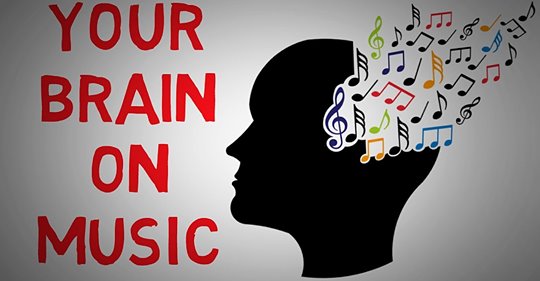
This Is Your Brain On Music - How Music Benefits The Brain
Share

One of the most common affects music has, is that it can alter our mood and feelings, by stimulating the formation of certain brain chemicals. When you listen to music you actually like, your brain releases a neurotransmitter called dopamine. So basically music can makes us feel good.
One interesting thing is that when someone is sad, they often reach for sad music and they find that it helps them feel better. Another interesting aspect is how listening to music can affect our exercise regime.
As our body realizes we’re tired and wants to stop exercising, it sends signals to the brain to stop for a break. Listening to music competes for our brain’s attention, and can help us override those signals of fatigue. In the last few decades, neuroscientists have made enormous breakthroughs in understanding how our brains work, by monitoring them with instruments like MRIs.

Through brain scans we have found that musicians have different brains than non-musicians. People who play an instrument have bigger, better connected, more sensitive brains. It’s also never too late to start learning an instrument. Seniors who play an instrument or sing with other people are more resistant to cognitive and memory problems. So both listening and creating music has it's own benefits.
This article is taken from Youtube:
